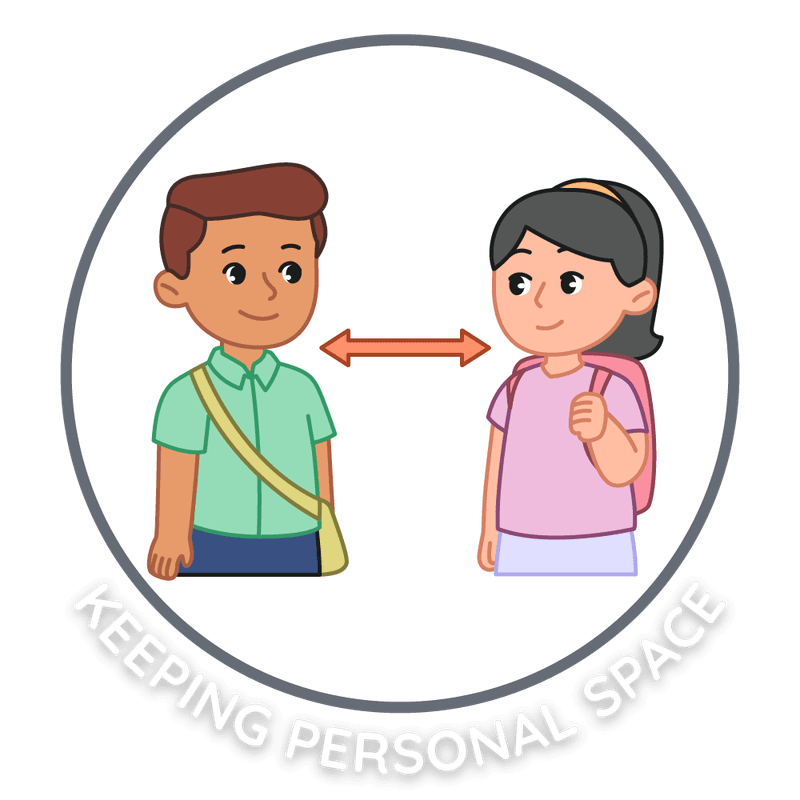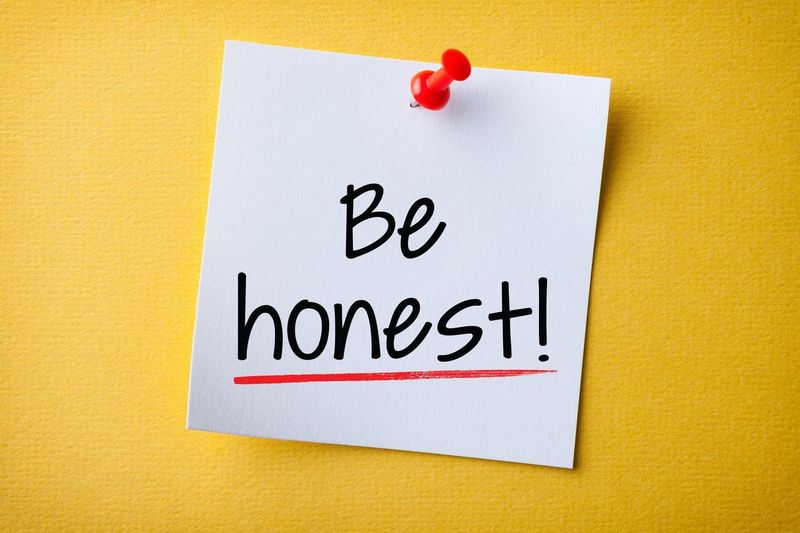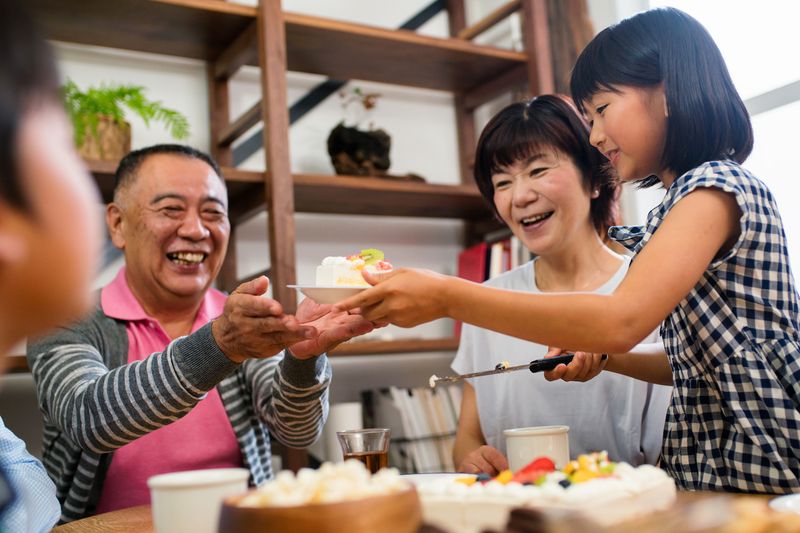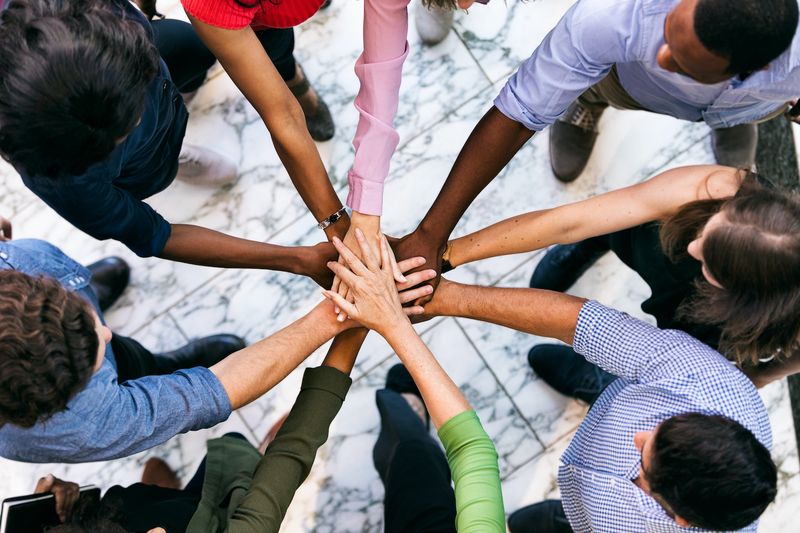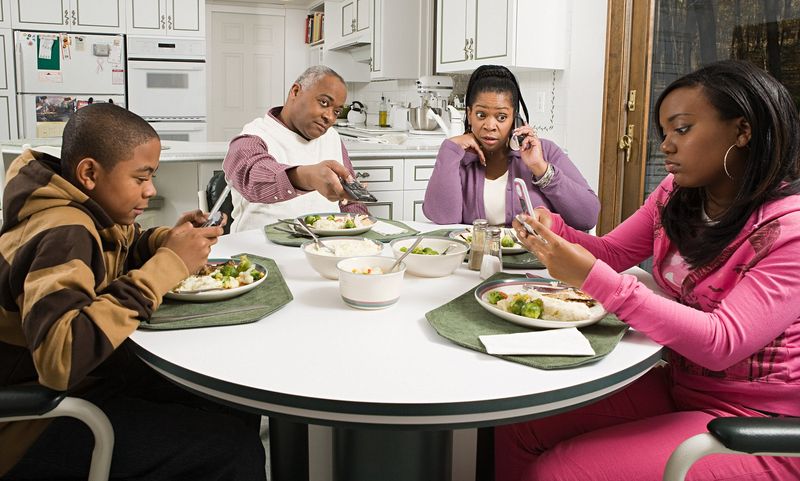In a world where societal norms often go unspoken, understanding and adhering to these unwritten rules can greatly enhance our interactions and relationships.
These guidelines, while not officially documented, play a crucial role in maintaining harmony and respect within diverse communities.
Join us as we delve into 31 of these vital, yet often overlooked, principles that help shape a considerate and cooperative society.
1. Always Say Thank You
Expressing gratitude is a fundamental aspect of social interaction. Saying ‘thank you’ acknowledges the efforts of others and reinforces positive behavior. This simple act can foster goodwill and build stronger relationships.
Whether it’s a small favor or a significant help, gratitude can make the giver feel valued and appreciated. It’s a practice that transcends cultures and is universally understood as a gesture of kindness.
Remember to express thanks genuinely, without expecting anything in return, and watch how it transforms your interactions. Gratitude is more than a word—it’s a way of living that enhances empathy and connection.
2. Hold the Door Open
Holding the door open for someone is a courteous gesture that signifies respect and consideration. It’s a small act of kindness that can brighten someone’s day.
Whether at the office, a retail store, or any public place, this simple action can convey a sense of community and cooperation. It reminds us that we are not alone, fostering a sense of belonging and shared space.
Next time you approach a door, take a moment to pause and hold it open for the person behind you. This small pause can lead to a ripple effect of kindness throughout your day.
3. Respect Personal Space
Respecting personal space is essential in interactions, helping individuals feel comfortable and secure. This unwritten rule is vital in both personal and professional settings.
When you respect someone’s personal space, you acknowledge their need for privacy and autonomy. This consideration can prevent misunderstandings and promote mutual respect. It’s especially important in crowded areas where space is limited.
Being mindful of personal space can improve communication and foster positive relationships. Always be conscious of cultural differences, as perceptions of personal space may vary globally, and adjust accordingly.
4. Listen Before Speaking
Listening before speaking is crucial for effective communication. It shows respect for the speaker’s perspective and promotes a more meaningful exchange.
Active listening involves giving full attention to the speaker, understanding their message, and responding thoughtfully. This practice can enhance relationships and reduce conflicts by ensuring all parties feel heard and understood.
In our fast-paced world, taking the time to listen can be challenging, but it is immensely rewarding. Prioritize listening in your interactions to build trust and empathy, paving the way for more constructive and collaborative dialogues.
5. Do Not Interrupt
Interrupting someone while they are speaking can be seen as disrespectful. Allowing others to complete their thoughts is a sign of respect and enhances communication.
By not interrupting, you show that you value the speaker’s contribution and are willing to consider their viewpoint. This can lead to more productive discussions and a more inclusive environment.
Practice patience and restraint in conversations. Wait for a natural pause before contributing your thoughts.
This creates a respectful dialogue and helps prevent misunderstandings, ensuring everyone’s voice is heard and respected in the conversation.
6. Be Punctual
Being punctual shows respect for other people’s time and is a fundamental aspect of professionalism. Arriving on time can set a positive tone for meetings and appointments.
Punctuality demonstrates reliability and commitment, qualities that are highly valued in both personal and professional relationships. It shows that you are organized and considerate of others’ schedules.
Make it a habit to plan ahead and allocate sufficient time for unforeseen delays. By doing so, you not only uphold your commitments but also inspire trust and respect from those around you, reinforcing your dependability.
7. Clean Up After Yourself
Cleaning up after oneself is a basic courtesy that shows respect for communal spaces and for those who use them after you. It contributes to a cleaner, more pleasant environment for everyone.
Whether at home, work, or a public place, leaving a space as clean as you found it reflects your consideration for others. This small act of responsibility can inspire similar behavior in those around you.
Remember that cleanliness is not just about appearances; it plays a crucial role in health and hygiene. Take pride in maintaining a clean space, setting an example for others.
8. Use Your Inside Voice
Using your inside voice is crucial in maintaining a peaceful environment, especially in shared spaces like offices and public transport.
By keeping your volume down, you show consideration for those around you, who may be working, resting, or simply seeking a quiet moment. It helps maintain a calm and respectful atmosphere.
This rule applies not only to verbal communication but also to phone calls and digital media.
Be mindful of your surroundings and adjust your behavior accordingly. Such awareness enhances your social interactions and reflects your respect for communal harmony.
9. Queue When Required
Queuing is a simple yet powerful way to maintain order in busy environments. It ensures fairness and efficiency, allowing everyone to be served in a systematic way.
While it may seem trivial, forming a queue shows respect for others’ time and needs. It prevents chaos and ensures that services are provided smoothly and equitably.
Patience and discipline are key when queuing. Respect the line and avoid cutting in. Your actions set a standard for others, promoting a culture of civility and mutual respect in shared spaces.
10. Don’t Eavesdrop
Respecting privacy by not eavesdropping is an essential aspect of trust in any relationship. It shows that you value others’ confidentiality and boundaries.
Refraining from listening in on private conversations demonstrates integrity and respect. It helps build trust and maintains the dignity of personal interactions.
In an era where privacy is increasingly rare, being conscious of your actions and respecting others’ confidential moments is vital.
Encourage open and honest communication by respecting privacy, thus fostering a culture of trust and respect in your community.
11. Lend a Helping Hand
Offering help to others in need is a timeless gesture of kindness that enriches community ties. Whether simple or significant, your assistance can have a meaningful impact.
Helping others promotes a sense of unity and compassion. It can transform someone’s challenging day into a manageable one, reinforcing social bonds and mutual support.
Be proactive in offering help, whether opening a door, carrying bags, or providing guidance. Such actions not only benefit those you assist but also bring personal satisfaction and strengthen the spirit of camaraderie in society.
12. Be Honest
Honesty is the foundation of any strong relationship, personal or professional. Being truthful builds trust, encourages transparency, and creates an environment for open dialogue.
In a world where misinformation is rampant, holding onto honesty can be challenging but is crucial. It fosters integrity and respect, qualities that are universally valued.
Practice honesty in all interactions. It’s not just about telling the truth, but also about being sincere and authentic. By being honest, you contribute to a more genuine and trustworthy community, where open and transparent communication thrives.
13. Respect Elders
Showing respect for elders is a time-honored tradition that recognizes their wisdom and life experiences. It’s about valuing their contributions and acknowledging their role in our lives.
Listening to and learning from elders can provide valuable insights and guidance. They have walked paths we are yet to explore, offering a rich perspective on life.
Engage with elders with courtesy and patience. A simple gesture of respect can mean the world to them, strengthening intergenerational bonds and fostering a community of mutual appreciation and respect.
14. Apologize When Wrong
Apologizing when wrong is a sign of maturity and accountability. It shows that you value the relationship more than your ego, paving the way for healing and reconciliation.
An apology can diffuse tension and prevent misunderstandings from escalating. It acknowledges the impact of your actions and fosters forgiveness and empathy.
Be sincere and specific when apologizing. Acknowledge your mistake and express your willingness to make amends.
This honest approach can rebuild trust and strengthen connections, reminding us that everyone makes mistakes but learning and growing from them is key.
15. Smile and Make Eye Contact
Smiling and making eye contact are universal gestures of friendliness and approachability. They convey warmth and build immediate connections with others.
These simple actions can break down barriers and create a welcoming atmosphere. They show that you are open to interaction and respect the presence of those around you.
Next time you meet someone, try smiling and making eye contact. It may seem small, but it can have a profound impact on social interactions, fostering a sense of trust and rapport that enhances community spirit and cooperation.
16. Mind Your Language
Using respectful language is fundamental in maintaining harmony in any interaction. Your choice of words can impact others profoundly, reflecting your character and intentions.
Being mindful of language helps avoid misunderstandings and conflicts. It promotes a culture of respect and consideration, where everyone feels valued and included.
Practice using positive and inclusive language. Avoid derogatory terms or harsh criticism. By doing so, you create an environment of understanding and empathy, where healthy communication can thrive and relationships can flourish.
17. Return Borrowed Items
Returning borrowed items is a simple but important act of responsibility and respect. It shows that you value the lender’s generosity and trust.
Failing to return items can strain relationships and erode trust. It’s about acknowledging the temporary nature of borrowing and fulfilling the obligation to restore possession.
When borrowing, communicate clearly about expectations and timelines. Ensure the item is returned in good condition.
This consideration reinforces reliability and respect, strengthening bonds and fostering a culture of trust and accountability in personal interactions.
18. Respect Cultural Differences
Respecting cultural differences is key in our interconnected world. It allows us to celebrate diversity and learn from varied perspectives, enriching our understanding of humanity.
Being open to cultural diversity fosters inclusivity and harmony. It helps break down stereotypes and encourages meaningful exchanges that promote empathy and cooperation.
Approach cultural differences with curiosity and respect. Listen and learn about traditions and values different from your own.
This approach not only broadens your worldview but also strengthens global connections, highlighting the beauty of a diverse, yet united society.
19. Compliment Genuinely
Genuine compliments can uplift spirits and strengthen relationships. They show appreciation and recognition, important for building confidence and positive rapport.
Complimenting others should be sincere and specific. Recognize attributes or actions that you genuinely admire. This authenticity can deepen connections and foster a supportive environment.
A simple, heartfelt compliment can make someone’s day brighter. Practice offering genuine praise regularly, as it encourages positivity and reinforces mutual respect and goodwill within any community or workplace.
20. Be Mindful of Body Language
Body language is a powerful form of communication that often speaks louder than words. Being aware of your gestures and expressions can enhance understanding and empathy.
Positive body language, like nodding or smiling, can make interactions more engaging and less intimidating. It shows that you are attentive and interested, fostering a comfortable atmosphere.
Be mindful of how you present yourself. Avoid crossing your arms or looking away, as these can signal disinterest or defensiveness. By aligning your body language with your verbal communication, you build trust and improve interpersonal connections.
21. Avoid Gossip
Gossiping can damage relationships and create a toxic environment. It’s important to avoid spreading rumors or engaging in negative talk about others.
By steering clear of gossip, you show respect for others’ privacy and maintain a positive atmosphere. It fosters trust and encourages open, honest communication.
Focus on uplifting conversations and constructive feedback. Encourage others to do the same, creating a culture of positivity and respect. This approach not only strengthens bonds but also builds a community where everyone feels safe and valued.
22. Ask Before Taking Photos
Asking for permission before taking photos, especially in private settings, respects privacy and personal boundaries. It shows you value consent and individual comfort.
In today’s digital age, being photographed can feel intrusive. Always seek consent to ensure that everyone feels at ease and respected.
This rule is particularly important in diverse and multicultural settings where privacy norms may vary. By asking first, you demonstrate cultural sensitivity and respect for personal space, fostering a considerate and inclusive atmosphere.
23. Take Turns Speaking
Taking turns speaking is essential in conversations, ensuring everyone has the opportunity to express themselves. It promotes fairness and inclusivity.
By allowing each person to contribute, you foster a more dynamic and engaging dialogue. It encourages diverse viewpoints and enriches the discussion.
Practice patience and listen actively. Encourage quieter participants to share their thoughts.
This inclusive approach not only enhances communication but also strengthens group cohesion, making interactions more respectful and rewarding for everyone involved.
24. Don’t Text at the Table
Texting at the table can be seen as disrespectful, as it shifts focus away from those present. Sharing meals is a time for connection and conversation.
By putting your phone away, you show that you value the company and are fully engaged in the moment. It fosters genuine interaction and strengthens personal ties.
Make a conscious effort to prioritize face-to-face communication during meals. This practice not only enhances your relationships but also contributes to a more mindful and meaningful dining experience.
25. Help Those in Need
Helping those in need is a cornerstone of a compassionate society. Whether through volunteer work or simple acts of kindness, your support can make a significant impact.
Offering help promotes empathy and solidarity. It strengthens community ties and provides much-needed support to those facing challenges.
Look for opportunities to assist others, whether through charity, community service, or offering a listening ear. By doing so, you contribute to a more caring and cohesive society, where everyone feels valued and supported.
26. Respect Quiet Zones
Respecting quiet zones is important for maintaining tranquility in spaces where people seek peace and concentration, like libraries and hospitals.
By keeping noise levels down, you show consideration for others who may be studying, resting, or working. It helps preserve the purpose of these spaces, promoting harmony.
Be mindful of these environments and adjust your behavior accordingly. This respect for quiet zones enhances everyone’s experience, allowing individuals to enjoy the serenity and focus such settings are meant to provide.
27. Use Headphones in Public
Using headphones in public respects others’ right to a quiet environment. It helps reduce noise pollution and ensures everyone enjoys their personal space without disturbance.
Listening to music or media loudly can be intrusive. By using headphones, you show respect for those around you, maintaining a considerate atmosphere.
Always be aware of your surroundings and keep volume at a reasonable level. This small practice enhances public spaces’ comfort and ensures that everyone can enjoy a peaceful and pleasant experience during their commute.
28. Conserve Water and Energy
Conserving water and energy is vital for environmental sustainability. It reflects your commitment to preserving natural resources for future generations.
Small actions, like turning off lights and fixing leaks, can make a big difference. They reflect a responsible attitude towards resource management.
Adopt habits that reduce consumption and promote efficiency. Encourage others to do the same, creating a culture of conservation and awareness. This proactive approach not only benefits the planet but also sets a positive example for your community, highlighting the importance of sustainable living.
29. Be Kind to Animals
Showing kindness to animals reflects our humanity and compassion. It demonstrates respect for all living beings and enhances our connection with nature.
Whether domestic pets or wildlife, treating animals with care and consideration is essential. It fosters a world where all creatures can coexist peacefully.
Practice kindness by supporting animal welfare initiatives and respecting natural habitats. Encourage others to treat animals with the same compassion. This approach not only enriches your life but also contributes to a more empathetic and harmonious world.
30. Be Patient
Patience is a virtue that can lead to more harmonious interactions. It helps manage stress and fosters understanding in challenging situations.
Being patient allows you to respond thoughtfully rather than react. It shows respect for others’ circumstances and promotes a culture of empathy and tolerance.
Practice patience in daily life, whether waiting in line or dealing with delays. This mindset not only improves your well-being but also strengthens your relationships, highlighting the importance of understanding and compassion in society.
31. Encourage Others
Encouraging others can have a profound impact on their confidence and motivation. It creates a supportive environment where individuals feel valued and inspired.
Offering encouragement can be as simple as a kind word or a gesture of support. It fosters positivity and boosts morale, enhancing group dynamics.
Be generous with encouragement in personal and professional settings. It strengthens relationships and promotes a culture of growth and achievement. By uplifting others, you contribute to a community where everyone feels empowered and appreciated.



